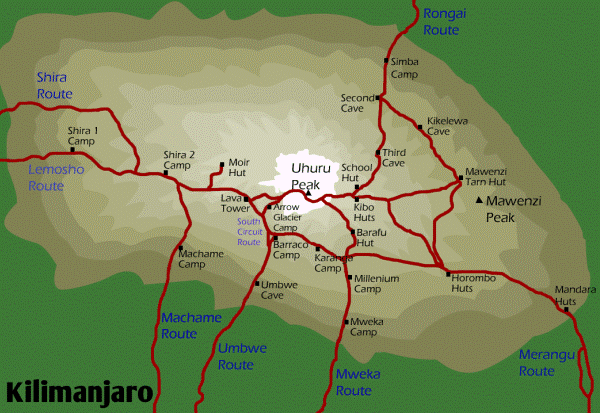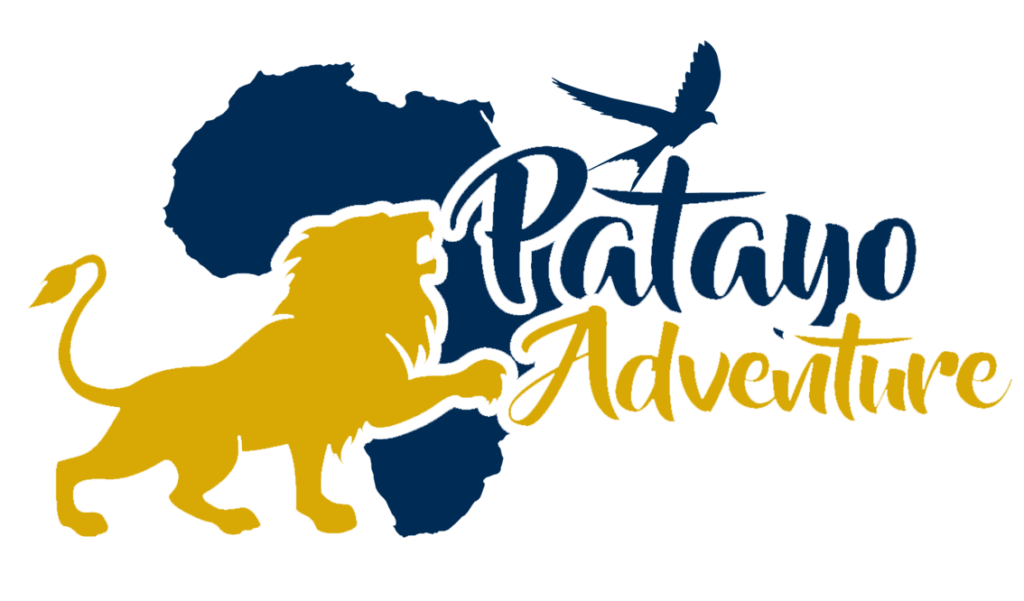6 Day Kilimanjaro Trekking –Rongai route + 2 nights hotel stay
Overview
Rongai is the main course beginning the northern incline of Kilimanjaro. However, this piece of the Mountain is seldom visited by climbers, it isn’t less intriguing than the well-known southern and western slants. We prescribe Rongai to every one of the people who like isolated climbing encounters. Getting to the trailhead – Nalemuru Gate – for the most part requires 3-4 hours from Aishi Machame Hotel. Rongai is additionally the main course that passes by Mawenzi, one of the three volcanic cones of Kilimanjaro and the third most noteworthy top in Africa. The way back lies through Marangu, and subsequently you will actually want to see the two sides of the mountain. However, six and seven-day programs are accessible, a more extended choice is suggested for better acclimatization progress.

Included
Transfers:
- Pick-up and drop-off at Kilimanjaro International Airport;
- Transfer to the trailhead – entry gate to Kilimanjaro National Park;
- Pick-up at the exit from Kilimanjaro National Park and transfer to the hotel;
𝙀𝙣𝙩𝙧𝙮 𝙛𝙚𝙚𝙨:
- All park fees collected by the Kilimanjaro National Park (conservation fees, camping fees, crew fees, vehicle fee, rescue fee and all other fees collected by the Tanzania National Parks Authority).
𝘼𝙘𝙘𝙤𝙢𝙢𝙤𝙙𝙖𝙩𝙞𝙤𝙣:
- One night at 3* hotel (Weru Weru River Lodge or Similar) before the expedition and one night after; The hotels have everything for your comfortable stay – caring staff, nice rooms, reliable Wi-Fi, restaurant and swimming pool);
- Tented accommodation on Mount Kilimanjaro (modern comfortable 4-season North Face VE-25 tents).
𝙋𝙡𝙚𝙖𝙨𝙚 𝙣𝙤𝙩𝙚: All accommodation is on sharing basis (i.e. you will be sharing with your travel companion a twin/double room in the hotel and a tent during the hike. If you travel alone, we will match you with a same-sex adventurer). 𝙈𝙚𝙖𝙡𝙨:
- Breakfast in the hotel before and after the hike
- All meals on the hike. Our Kilimanjaro diet includes energy-rich and highly nutritious meals prepared by our professional high-altitude cooks. A typical diet on Kilimanjaro includes different soups, garnishes, several types of fish and meat, fresh fruit and vegetables; vegetarian/gluten- free/halal options are available at no extra cost;
- All drinks on the hike (coffee, tea, hot chocolate and water).
𝐇𝐢𝐤𝐢𝐧𝐠 𝐚𝐧𝐝 𝐬𝐚𝐟𝐞𝐭𝐲 𝐞𝐪𝐮𝐢𝐩𝐦𝐞𝐧𝐭:
- 4-inch (10-cm) thick and comfortable sleeping mats;
- All group equipment (spacious and comfortable dining tent, camping table and chairs, crockery and cutlery);
- Oxygen cylinders and oximeters;
- Complete medical kits.
- Climbing crew:
- Professional guides, licensed by Kilimanjaro National Park. All our guides are the holder of Wilderness First Responder or Wilderness First Aid certifications. All our guides have 10+years of successful mountaineering experience;
- Dedicated support crew (assistant guides, camp master, porters, cooks, etc.).
Excluded
- Airline tickets;
- Alcoholic and soft drinks
- Visa fees
- Tips
- Personal spending money for souvenirs etc.
- Travel insurance
- Personal gear rentals;
𝐓𝐢𝐩𝐩𝐢𝐧𝐠 𝐨𝐧 𝐊𝐢𝐥𝐢𝐦𝐚𝐧𝐣𝐚𝐫𝐨 𝐢𝐬 𝐚𝐧 𝐞𝐬𝐬𝐞𝐧𝐭𝐢𝐚𝐥 𝐚𝐧𝐝 𝐜𝐮𝐬𝐭𝐨𝐦𝐚𝐫𝐲 𝐰𝐚𝐲 𝐨𝐟 𝐭𝐡𝐚𝐧𝐤𝐢𝐧𝐠 𝐲𝐨𝐮𝐫 𝐦𝐨𝐮𝐧𝐭𝐚𝐢𝐧 𝐜𝐫𝐞𝐰 𝐟𝐨𝐫 𝐚𝐥𝐥 𝐨𝐟 𝐭𝐡𝐞𝐢𝐫 𝐡𝐚𝐫𝐝 𝐰𝐨𝐫𝐤. 𝐀𝐧𝐝 𝐦𝐚𝐧 𝐝𝐨 𝐭𝐡𝐞𝐲 𝐰𝐨𝐫𝐤 𝐡𝐚𝐫𝐝!! 𝐀 𝐠𝐨𝐨𝐝 𝐫𝐮𝐥𝐞 𝐨𝐟 𝐭𝐡𝐮𝐦𝐛: 𝐩𝐥𝐚𝐧 𝐭𝐨 𝐭𝐢𝐩 𝐚𝐫𝐨𝐮𝐧𝐝 𝟏𝟎% 𝐨𝐟 𝐲𝐨𝐮𝐫 𝐜𝐥𝐢𝐦𝐛 𝐩𝐫𝐢𝐜𝐞. 𝐋𝐞𝐚𝐝 𝐠𝐮𝐢𝐝𝐞: $𝟐𝟎-$𝟑𝟎 𝐩𝐞𝐫 𝐝𝐚𝐲 𝐀𝐬𝐬𝐢𝐬𝐭𝐚𝐧𝐭 𝐠𝐮𝐢𝐝𝐞𝐬: $𝟏𝟓-$𝟐𝟓 𝐩𝐞𝐫 𝐝𝐚𝐲 𝐂𝐨𝐨𝐤: $𝟏𝟎-$𝟏𝟓 𝐩𝐞𝐫 𝐝𝐚𝐲 𝐇𝐞𝐥𝐩𝐢𝐧𝐠 𝐩𝐨𝐫𝐭𝐞𝐫𝐬: $𝟖-$𝟏𝟐 𝐩𝐞𝐫 𝐝𝐚𝐲 * 𝐏𝐨𝐫𝐭𝐞𝐫𝐬: $𝟔-$𝟏𝟎 𝐩𝐞𝐫 𝐝𝐚𝐲
OTHER CLIMBING ROUTES
Overview
Including enthralling grand vistas, flawless natural life, magnificent acclimatization open doors and low traffic of climbers, Lemosho is our own most memorable number one for arriving at the top of Africa.
Following a 4-hour lengthy drive from Moshi to Londorossi Gate you’ll wind up on the western incline of Mt Kilimanjaro, from that point the course will take you to the incredibly popular Shira Plateau. That is where you’ll leave on your experience through all environment zones – from high knolls to timeless ice. The ascension is smooth and continuous, highlighting the most noteworthy achievement pace of all courses on Kilimanjaro.
Six, seven and eight-day programs are accessible, so you can pick contingent upon how much time available to you. Longer projects are constantly suggested over the more limited ones for better acclimatization.
8-day Lemosho programs start from a high-height drop-off: you’ll be moved to the rise of 3,500 m/11,500 f by a rough terrain vehicle and begin the climb from that point. This is intended to amplify acclimatization change – the higher you start, the simpler your variation will be.
Based on the number of participants. Price in UD$ per person. VAT included. Updated on 31.10.22
| ONE PARTICIPANT | $2,575 |
| TWO AND ABOVE PARTICIPANTS | $2,050 |

- Pick-up and drop-off at Kilimanjaro International Airport;
- Transfer to the trailhead – entry gate to Kilimanjaro National Park;
- Pick-up at the exit from Kilimanjaro National Park and transfer to the hotel;
- All park fees collected by the Kilimanjaro National Park (conservation fees, camping fees, crew fees, vehicle fee, rescue fee and all other fees collected by the Tanzania National Parks Authority).
- One night at 3* hotel (Weru Weru River Lodge or Similar) before the expedition and one night after; The hotels have everything for your comfortable stay – caring staff, nice rooms, reliable Wi-Fi, restaurant and swimming pool);
- Tented accommodation on Mount Kilimanjaro (modern comfortable 4-season North Face VE-25 tents).
- Breakfast in the hotel before and after the hike
- All meals on the hike. Our Kilimanjaro diet includes energy-rich and highly nutritious meals prepared by our professional high-altitude cooks. A typical diet on Kilimanjaro includes different soups, garnishes, several types of fish and meat, fresh fruit and vegetables; vegetarian/gluten- free/halal options are available at no extra cost;
- All drinks on the hike (coffee, tea, hot chocolate and water).
- 4-inch (10-cm) thick and comfortable sleeping mats;
- All group equipment (spacious and comfortable dining tent, camping table and chairs, crockery and cutlery);
- Oxygen cylinders and oximeters;
- Complete medical kits.
- Climbing crew:
- Professional guides, licensed by Kilimanjaro National Park. All our guides are the holder of Wilderness First Responder or Wilderness First Aid certifications. All our guides have 10+years of successful mountaineering experience;
- Dedicated support crew (assistant guides, camp master, porters, cooks, etc.).
Excluded
- Airline tickets;
- Alcoholic and soft drinks
- Visa fees
- Tips
- Personal spending money for souvenirs etc.
- Travel insurance
- Personal gear rentals;
